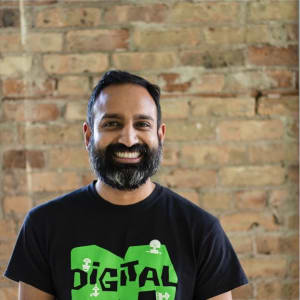At Digital Adventures, our entire curriculum is centered around developing students into independent technologists. Understanding how to code is critical, but it's not enough. So our curriculum is divided into three main areas: coding, problem-solving and social-emotional skills. As students grow in these areas, they progress through our 6 Levels of development. By the time students reach Level 6, they should be able to brainstorm a project idea and take it all the way to a finished product with minimal instructor support.
Every child learns differently, so we introduce each concept area to students in multiple ways, including social activities & games, verbal explanations, visual diagrams and in-context usage. Similarly, we also assess understanding in multiple ways including one-on-one Q&A, class presentations, written questions and independent project completion.
Scratch is foundational
After exploring 8 different coding languages and over 15 different development platforms, we believe that Scratch is the best developmental coding environment for our K-8 students. Because of it's accessible format, we're able to focus on coding concepts without getting bogged down in the spelling and grammar issues that derail many novice coders. However, Scratch also has a high enough ceiling of complexity that our projects can challenge even students who are already comfortable with the language. Best of all, Scratch is also versatile enough for a variety of projects, including video game design, animation and robotics. Your child won't be bored as they learn how to build.
Once your child completes a Scratch project, they have the opportunity to continue practicing at home which is essential to getting the repetitions needed to develop their independence.
Our proprietary web platform
Our curriculum is tightly intertwined with our proprietary web platform that students use both in class as well as for out-of-class practice. Our platform guides students through projects with an eye on independence – students are encouraged to use only as much help as they need. The platform keeps track of how much support it provides each student during a project as well as the particular areas where students keep getting stuck. Instructors use this information to better personalize the student experience with targeted questions and feedback to make sure that every student is getting the support that they need.
Coding concepts
At Digital Adventures, students learn six fundamental coding concepts: variables, loops, logic, conditions, events, and functions. Each class, instructors cycle through a different concept that forms the focus for the day. Students are also exposed to multiple integrated concepts in every project because we believe that seeing how code is used "in the wild" is the best way to learn how to use it effectively. Students demonstrate mastery when they're able to both describe a concept completely as well as use it correctly in context with minimal instructor support.
Problem-solving & computational thinking skills
Generalizable problem-solving skills are key for any kind of technology development, including coding. However, problem-solving can only be taught in context, so we introduce these skills to students as needed and reference them regularly. For example, if a student is stuck on a coding bug, instructors may review a core debugging skill like narrowing down the location of a bug. As students move through [our progression], they're expected to show mastery on a wider variety of skills.
Social-emotional skills
In addition to specific domain skills and generalizable problem-solving skills, students also need effective social-emotional skills to take a project from idea to completion. Effective technologists need to communicate technical concepts, work collaboratively with others, show resilience in the face of roadblocks, be comfortable with ambiguity and lead a team. These themes are integrated into each class and form the culture of our classes at Digital Adventures. Resilience forms the base of all our social-emotional skills, and students work their way up to leadership as they progress through our curriculum. While social-emotional skills are not assessed on a class-by-class basis, instructors will keep track of student progress in each area for discussion during parent-teacher conferences.
Our 6-Level progression
We assume that new students have no technical experience and need heavy support from both instructors and our software platform. Students demonstrate independence and mastery in multiple ways as they progress from followers into tech leaders. Students also progress through each level at their own pace, so they stay engaged and appropriately challenged. Each level should take approximately 6 months for a student between 3rd and 5th grade. Younger students will take longer while older students may progress quicker.
By the time students graduate Level 3, they gain the option to move from Scratch into a more specialized language, but they start from level 1 again every time they switch languages. Depending on their project interest, students can learn how to make professional 3D games in Unity with C#, mod Minecraft with Java, design Roblox projects with Lua, create web applications with HTML/CSS/Ruby/JavaScript, program the Raspberry Pi with Python or build robots with C.
Conclusion
At Digital Adventures, we want you to know that your child is in good hands socially, emotionally and academically. In order to have this confidence, we think it is important for you to understand what your child will learn, how they will progress through our curriculum and what makes us different. We also thought it was important to highlight why we utilize Scratch as the foundational language for skill development.
Join our growing community!
Sign up to receive the latest news, special offers, & updates about Digital Adventures.



 By:
By: